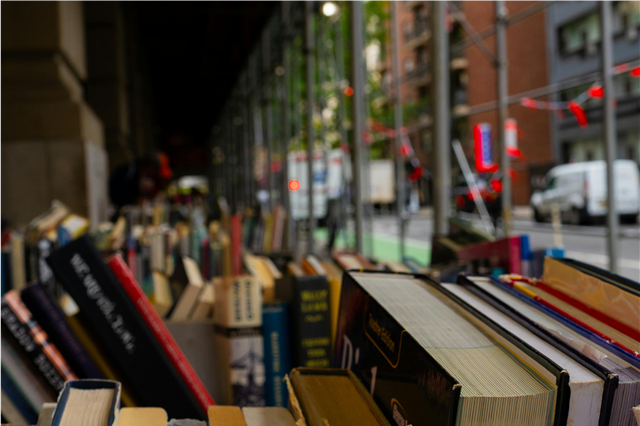
What are the uses of literature in exploring different cultures and worldviews?
Literature serves as a passport to worlds beyond our own, offering an unparalleled window into diverse cultures and perspectives. But did you know that reading literature from different cultures actually rewires your brain? Here are 15 compelling facts that reveal how literature becomes our ultimate cultural exploration tool.
The Mind-Expanding Power of Cultural Literature
1. Literature Rewires Your Brain for Empathy Neuroscientists have discovered that reading literary fiction literally changes your neural pathways. When you engage with stories from different cultures, your brain's empathy centers become more active, making you better at understanding diverse perspectives. This effect can last for days after you finish reading!
2. You're Getting an Authentic Cultural Education Did you know that UNESCO estimates 90% of world literature remains untranslated? When you read translated works from other cultures, you're accessing authentic voices that tourism brochures and documentaries simply can't capture. Authors like Chinua Achebe, Haruki Murakami, and Isabel Allende offer insider perspectives that textbooks miss entirely.
Breaking Down Cultural Barriers Through Stories
3. Literature Transcends Political Boundaries While politicians build walls, literature tears them down. Books like "The Kite Runner" by Khaled Hosseini or "Persepolis" by Marjane Satrapi have helped millions understand complex geopolitical situations through human stories, creating bridges of understanding across political divides.
4. You're Time-Traveling Through History Literature acts as a cultural time capsule. Want to understand how a society thought and felt 200 years ago? Read their literature. Russian classics like "War and Peace" or Chinese novels like "Dream of the Red Chamber" offer more authentic historical insights than many academic texts.
5. Small Nations, Big Cultural Impact Literature allows smaller cultures to have disproportionate global influence. Iceland's population of 360,000 has given the world "10-15" by Halldór Laxness (Nobel Prize winner) and the globally popular "Game of Thrones" inspiration. Icelanders publish and read more books per capita than almost anywhere else on Earth.
The Hidden Superpowers of Multicultural Reading
6. You're Building Cultural Intelligence Business schools now include world literature in their curricula because reading diverse authors develops what experts call "cultural intelligence" – the ability to function effectively across various cultural contexts. Companies report that employees who read widely across cultures make better international team members.
7. Literature Predicts Social Change Historically, literature has been a crystal ball for cultural movements. Novels like "Uncle Tom's Cabin" helped spark social change, while contemporary African literature is currently shaping how the world understands post-colonial African identities.
8. You're Preserving Endangered Cultures Many indigenous cultures rely on literature to preserve their languages and traditions. When you read works by Native American authors like Leslie Marmon Silko or Aboriginal writers like Alex Haley, you're helping keep ancient wisdom alive for future generations.
The Science Behind Literary Cultural Exploration
9. Multilingual Literature Offers Unique Benefits Reading literature in its original language, even if imperfectly, activates parts of the brain that monolingual reading doesn't. This is why scholars say reading even a few pages of Spanish magical realism like Gabriel García Márquez in the original can deepen cultural understanding beyond translation.
10. Your Reading List Becomes a Cultural GPS Research shows that people who read diverse world literature score higher on cultural competency tests. Organizations like the Modern Language Association have found that literature readers are 3x more likely to successfully navigate cross-cultural business negotiations.
Unexpected Ways Literature Shapes Cultural Understanding
11. Literature Influences Travel Decisions Literary tourism is a billion-dollar industry. Books like "Eat, Pray, Love" or "Under the Tuscan Sun" have transformed entire regional economies. But more importantly, they've created cultural exchanges that benefit both visitors and host communities.
12. You're Participating in Global Conversations Every time you read and discuss international literature, you're participating in worldwide cultural dialogues. Social media has made this even more powerful – book clubs discussing Khaled Hosseini's novels span from Mumbai to Minneapolis, creating global communities.
13. Literature Challenges Stereotypes Effectively Studies show that reading literature from stereotyped cultures is 5x more effective at reducing prejudice than watching documentaries or news reports. This happens because stories create emotional connections that facts alone cannot achieve.
The Global Impact of Cultural Literary Exchange
14. Nobel Prize Winners Often Bridge Cultures Since 1901, the Nobel Prize in Literature has frequently been awarded to authors who introduce Western audiences to non-Western perspectives. Authors like Rabindranath Tagore (India), Yasunari Kawabata (Japan), and Gabriel García Márquez (Colombia) have literally changed how the world thinks about entire civilizations.
15. Literature Creates Cultural Ambassadors Teachers worldwide report that students who read international literature are more likely to study abroad, learn languages, and pursue international careers. This creates a positive feedback loop where literature inspires real cultural exchange and understanding.
The Bottom Line: Literature as Your Ultimate Cultural Compass
Literature isn't just entertainment – it's the closest thing we have to a universal translator for human experience. While technology can take you to other places, literature takes you inside other minds. Every book from a different culture you read is a small act of cultural diplomacy, a vote for understanding over fear, and a step toward a more connected world.
The next time you pick up a book from an unfamiliar culture, remember: you're not just reading a story – you're expanding your capacity for human connection and understanding. In our increasingly divided world, that might just be the superpower we all need.
Ready to start your literary journey around the world? Begin with one book from a culture you know little about – your perspective on humanity will never be quite the same.
Keywords: literature uses, exploring cultures through books, worldviews in literature, cultural understanding through reading, international literature benefits, cross-cultural empathy, diverse worldviews, literary cultural exploration, global literature, multicultural reading benefits
Meta Description: Discover 15 fascinating facts about how literature helps explore different cultures and worldviews. Learn how reading international books builds empathy, breaks cultural barriers, and creates global understanding.















Post Comment